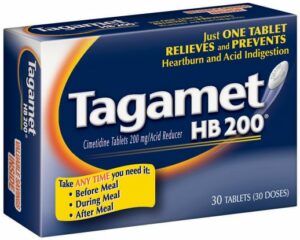Abstract:
Ketoconazole, a synthetic imidazole antifungal, is effective for superficial fungal infections, genital candidosis and chronic mucocutaneous candidosis, and has been used in immunocompromised patients and advanced prostatic carcinoma. Absorption of ketoconazole is variable after oral administration, with large variability in peak serum concentrations. Antacids reduce, and food or dilute hydrochloric acid increase, absorption. Renal failure and bone marrow transplantation are associated with reduced absorption. Ketoconazole is not absorbed systemically after topical administration, and minimally absorbed from the vagina. Distribution of ketoconazole varies according to the tissue sampled, the underlying disease and the dose and duration of treatment. Ketoconazole does not cross the intact blood-brain barrier, and crosses to only a limited extent in fungal meningitis. Urinary concentrations of ketoconazole are usually low, but vaginal and vaginal tissue concentrations correlate with those in serum. Seminal fluid concentrations are inadequate for treatment of epididymitis. Ketoconazole is 83.7% plasma protein (mainly albumin) bound, and 15.3% is erythrocyte bound, resulting in only 1% of free drug. Animal studies indicate strong binding to the cytochrome P-450 mono-oxygenase complex. Extensive metabolism to inactive metabolites occurs, the products being mainly excreted in the faeces. Saturable hepatic first-pass metabolism is probable. The half-life of ketoconazole is dose-dependent, increases during long term treatment, suggesting auto-inhibition of metabolism. The kinetics after oral administration fit a 2-compartment model. Drug interactions of theoretical, if not practical, significance include warfarin, chlordiazepoxide, methylprednisolone, cyclosporin and drugs known to induce microsomal enzymes. In each case, some dosage adjustment for ketoconazole, or the interacting drug, may be required.
Author:
Daneshmend TK; Warnock DW
Source:
Clin Pharmacokinet, 14: 1, 1988 Jan, 13-34
Address:
Department of Therapeutics, University Hospital, Nottingham.
Language:
English
Unique Identifier:
88165785





